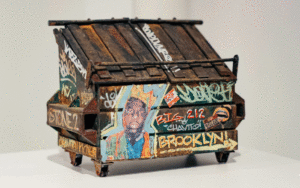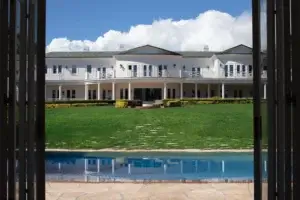Whether Greek, Japanese, or West African, masks have been known for their use in theatrical and ceremonial performances. Right now, though, amid the pandemic, we can’t help but associate the word mask with the all-too-familiar surgical masks. But masks can be much more complex than small face coverings. They can encompass the entire head, like full-coverage helmets worn in times of war or festive embellishments worn in moments of celebration. So, when Lexus tapped textile designer Chrissa Amuah and architect Tosin Oshinowo to design objects “conscious of our time” in coordination with 2020’s Design Miami/, the designers’ immediate response was to defy and rethink the limitations brought by the use of the mandatory face mask.
“The world finds itself in an unprecedented scenario—a great equalizer for everybody, whether rich or poor—where we all are acutely aware of the head as both hostage to and host of an invisible adversary,” Amuah said. However, “if wearing masks is said to be the way that we can all protect ourselves and each other,” Amuah added, “then let’s do it in a spectacular way, let’s make it joyous and celebratory.”
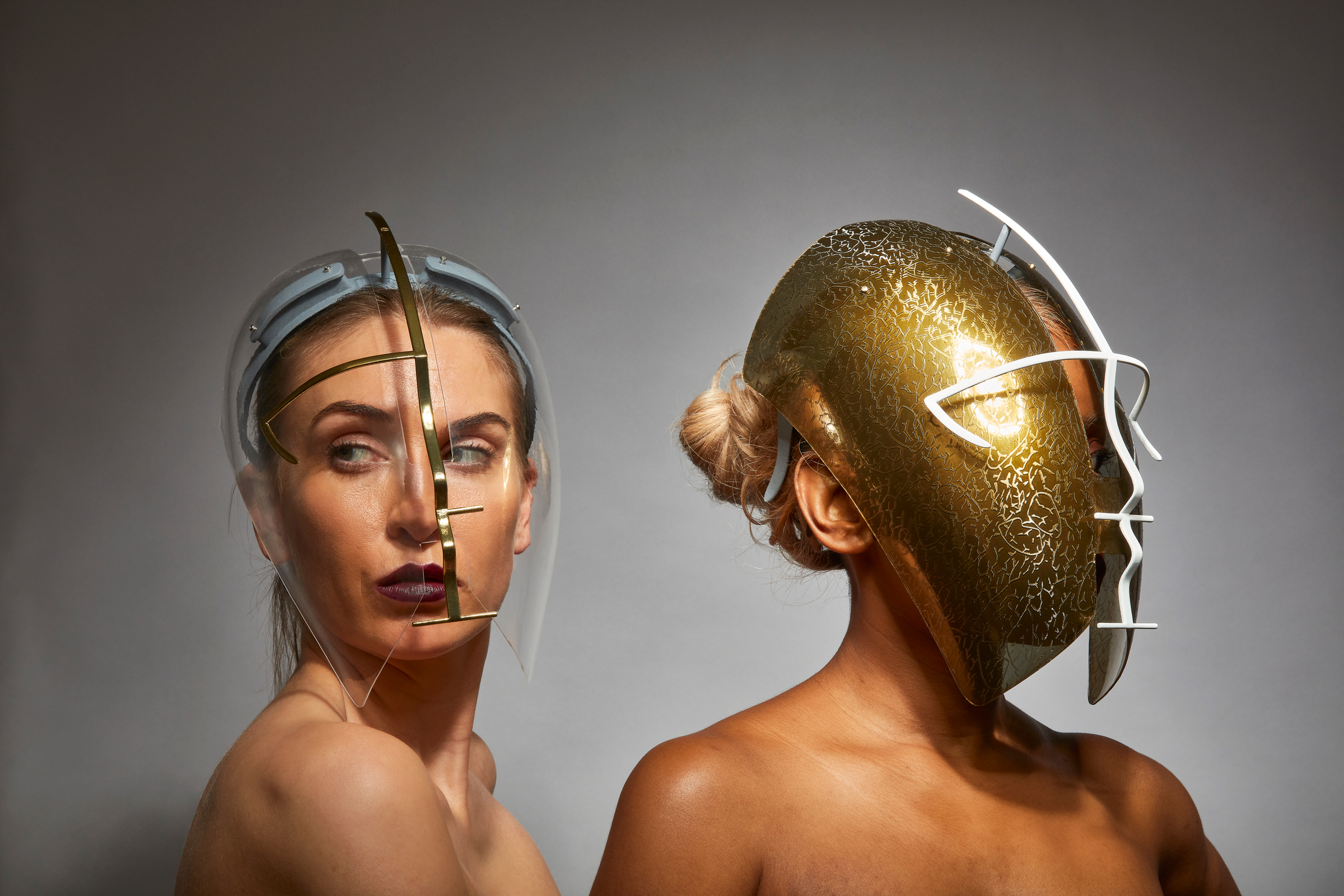
Amuah is the founder and creative director of AMWA Designs and the driving force behind Africa By Design, an exhibition of sub-Saharan design talent, which Oshinowo is also part of. Amuah is also part of the team representing Ghana at the London Design Biennale 2021. Oshinowo cut her teeth at Skidmore, Owings & Merrill and OMA and noted that the element of permanence was always part of her training, as opposed to Amuah’s more fluid or adaptable work. A RIBA member, Oshinowo is the lead architect at the Lagos-based cmDesign Atelier and founder of Ilé-Ilà, a furniture line that celebrates Oshinowo’s own Yorùbá culture.
Oshinowo and Amuah met three years ago through a mutual friend, lighting designer Damola Rufai, but this is the first time they have collaborated on a project. They prioritized showcasing “the very best of African culture and heritage,” Amuah said, “but in a way that speaks to our universal humanity.” The designers worked toward creating objects that could be worn by anyone anywhere in the world but that still carries strong elements of West African origin. “History hasn’t always been favorable to Africa. And this has been a really beautiful opportunity for us to highlight the many different ways in which Africa has contributed to modern civilization in a way that history books often overlook.”
A site east of the Termit in southeastern Niger was the inspiration for the first headpiece, which is named Egaro and crafted in acrylic, brass, and bronze. Egaro was the site of unparalleled innovation in ironwork starting over 5,000 years ago. The delicate-looking yet sturdy bronze profile line down the center of Oshinowo and Amuah’s piece gives it a Brâncuși-esque sculptural quality and a sharp, contemporary look. A second piece is titled Pioneer Futures, a nod to curiosity and the constant human search for technological breakthroughs. A ruffled collar made with laser-cut, folded leather rests on the shoulders with the option of a teal-colored leather chest piece finished with hand beading or that uses the “West African technique of Tinko embroidery to emulate the African fractal rhythm present in cornrow hair designs,” Oshinowo explained.
Fractal geometry is present in many aspects of African design, including the sophisticated urban planning in the ancient Kingdom of Benin, as Amuah recounted. Amuah and Oshinowo traveled to Benin City to connect with metalworkers, members of the bronze-casting guild who have mastered their age-old practice, which dates back to 1200 BC. Ògún, named for the traditional Yorùbá god of war, metal, and technology, is the third headpiece. Its design features a molded, reflective visor attached to a sleek collar made from brass, bronze, and rhinestone detail on suede. Together, the headsets compose a collection called Freedom to Move.
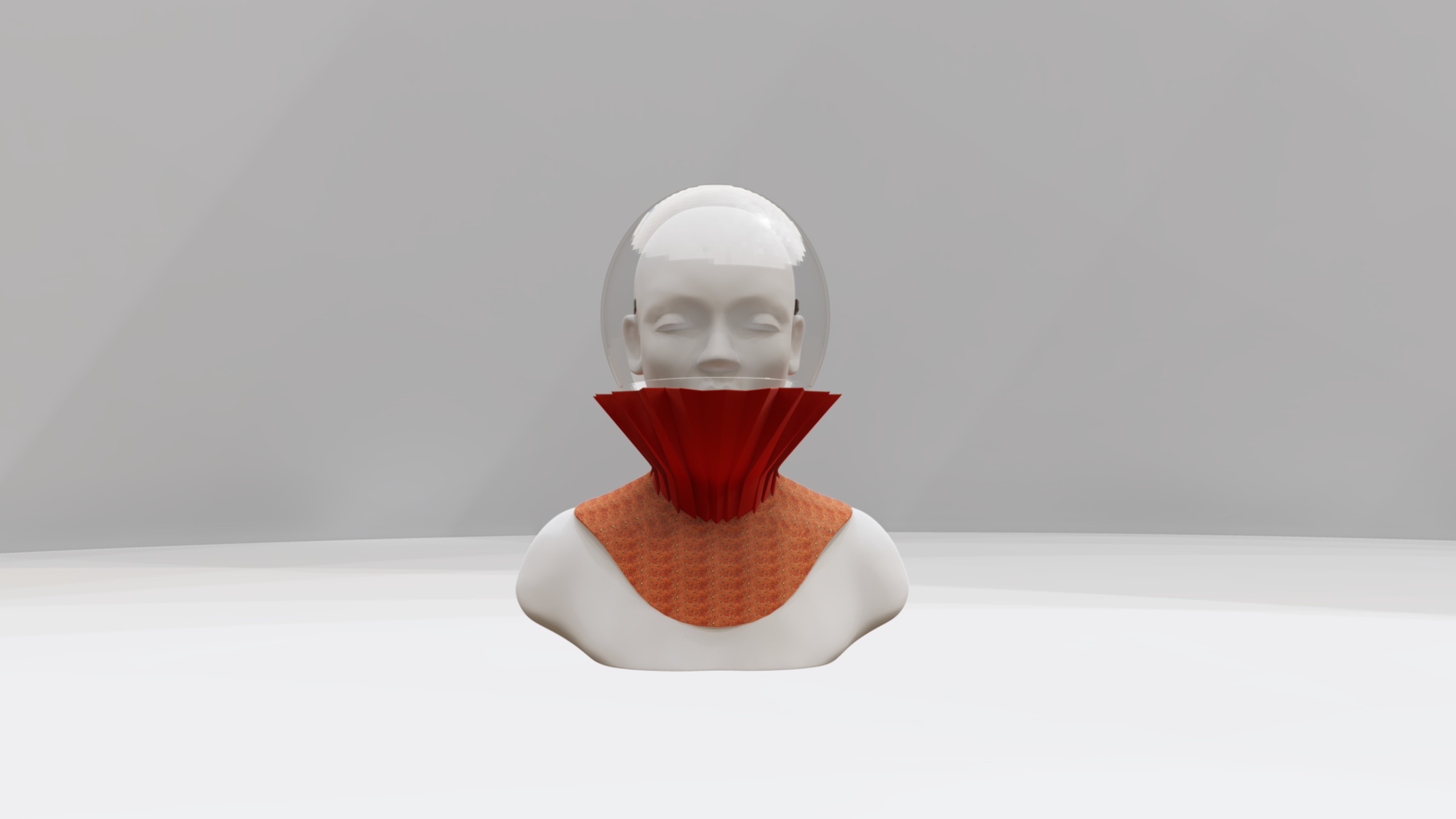
Egaro and Ògún offer two variations on the face shield, one transparent that allows faces to be seen from the outside and another with a coated surface that conceals the face. “I can almost see a situation where, post-COVID, people will still sometimes opt to wear masks,” said Oshinowo. “There’s also something nice about being hidden.” But, while cloaked, the etched surface pattern on the visor (which they’ve named Breathe and is based on African fractals) allows the user to see through reflective bronze.
In Lagos, Nigeria, a city of over 14 million people and one recently wounded by SARS police brutality and which went into pandemic-related lockdown late last year, Oshinowo and Amuah came together to create a concept that could connect humanity at a global scale. “The irony of this situation that we’ve gone through as a civilization is that, in our collective memories, this [pandemic] has not happened,” Oshinowo said. “The last time that this happened on this scale was in the late 1910s, so there’s [almost] no one alive who has experienced this, and it’s made us respect the fact that there is a temporal nature to being human.”
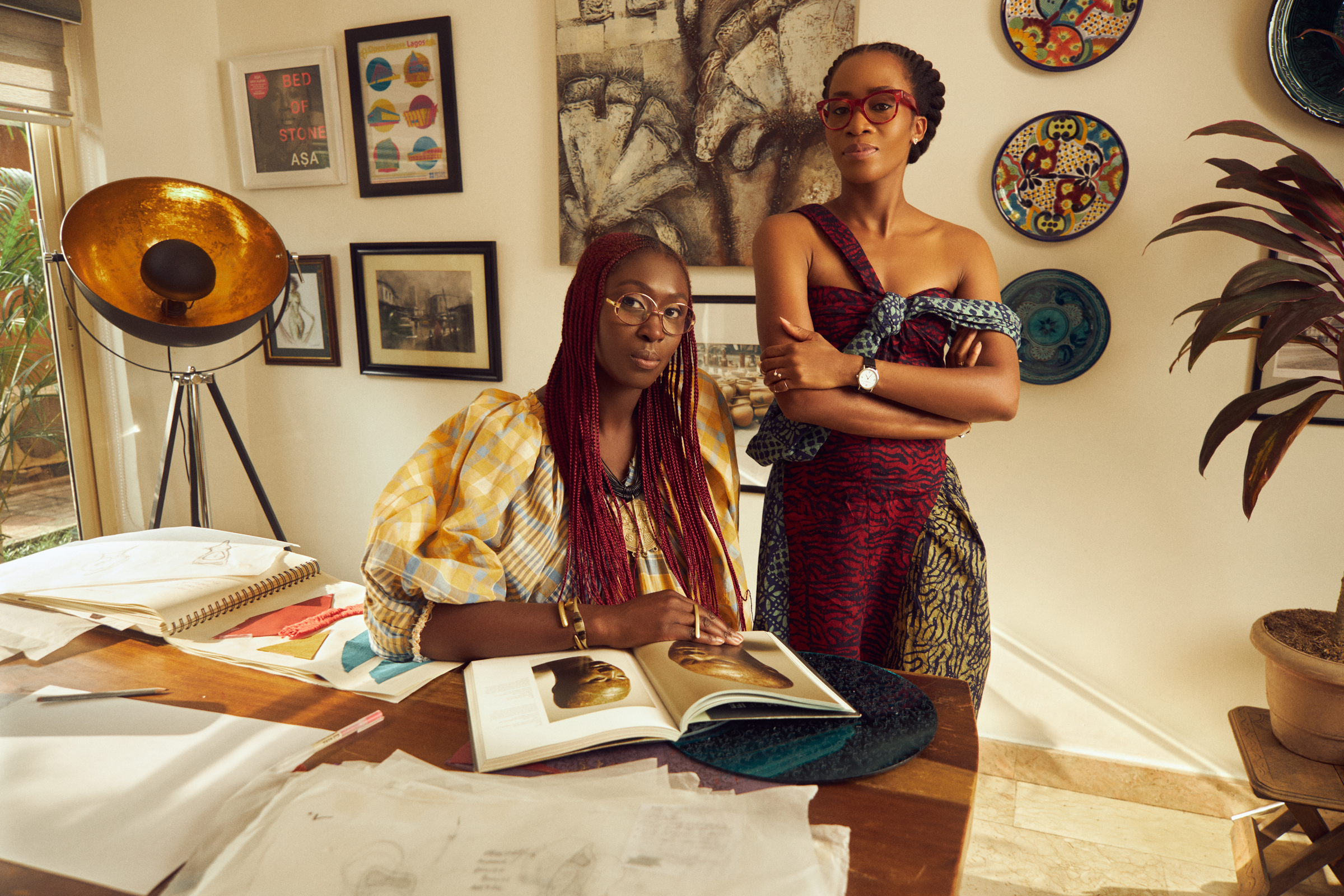
Contrary to what might be expected given their polished appearances, these pieces are not luxury objects. “The [African] ceremony of wearing masks was not exclusive to a particular demographic of society,” Amuah explained. “In that sense, and because they are so conceptual, they can be celebrated by everybody.”









